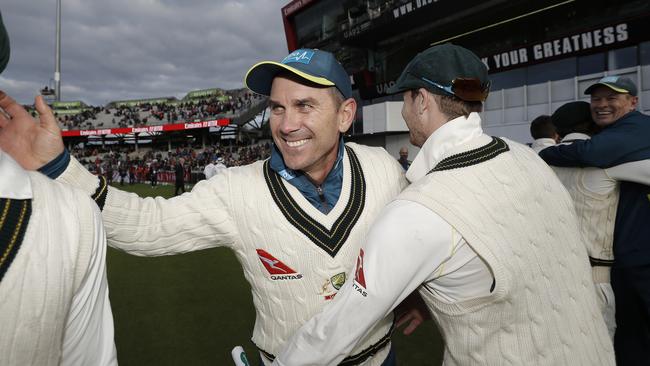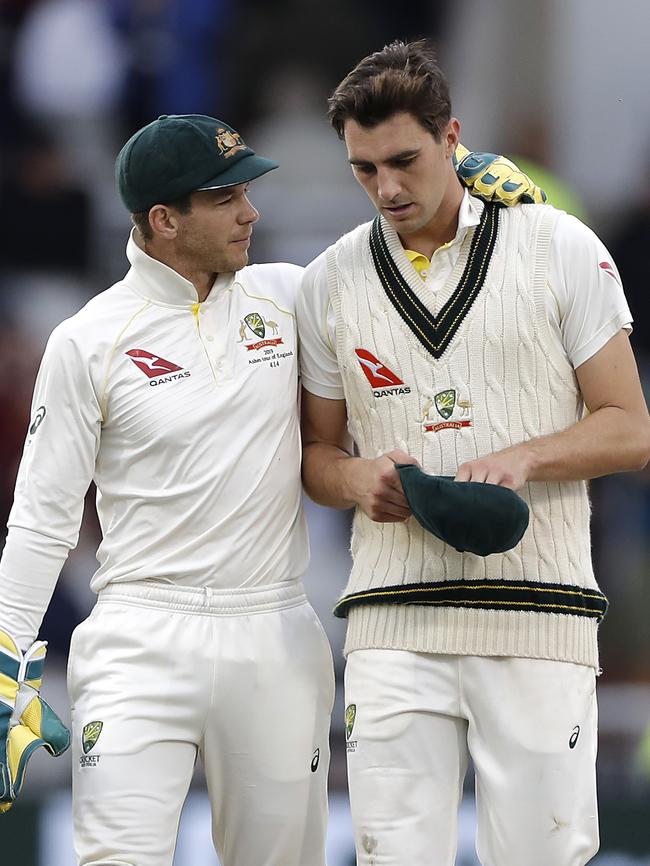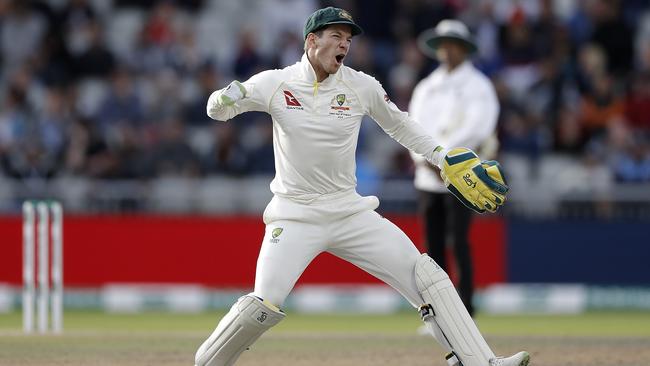Ashes: After sorrows and setbacks, Australian cricket has something to celebrate at last

The effect was surprisingly powerful. Australia looked manifold, unified, overwhelming, and almost purified by their victory — and perhaps, to an extent, they were. After the sorrows and setbacks of the last 18 months, the country’s cricket has something to celebrate at last.
Their coach Justin Langer, interestingly, remained in the background. This was the culmination of a task long aimed for — victory in England for the first time since 2001. But it was a players’ moment.

Ironically, this may not be the way these Ashes are remembered. For a decidedly even series, it has played out in uneven ways. Twenty-nine players have featured. But apart from Steve Smith and Ben Stokes, who would deserve a pass mark on their individual performances so far? Probably Marnus Labuschagne, Pat Cummins and Josh Hazlewood among the Australians; maybe Stuart Broad and Rory Burns among the Englishmen. But who else?
MORE: Thriller as Aussies retain Ahes — How the day unfolded | Tim Paine’s men succeed where great sides captained by Ricky Ponting, Michael Clarke could not
This has not prevented the spectacle being watchable, suspenseful, even thrilling. But there have been a lot of middling to disappointing cricketers on both sides. If you wanted to be picky, you could argue that the Australians have come out ahead because their stars have been that much more luminous.
Firstly, of course, we’re talking Smith. As a man and sportsman, he may never redeem himself to universal satisfaction; as a batsman, he has moved into elite company, maybe even the most elite.
The alignment with Bradman is noteworthy because it varies the way the comparison is usually made: the resemblance is closest statistically, loosest aesthetically. Where the Don was renowned for a detached, clinical, almost impersonal control, of the bat and of himself, Smith seems at sixes and sevens until the ball is in flight, whereupon time almost appears to stand still and the field to open for his delectation.

Have a cricketer’s capers ever driven rivals so crazy? By the second innings of this Old Trafford Test, it was like Smith doing Smith — jerking, shrugging, grinning, gurning, falling over, getting up, exciting hilarity among Australian fans, mirthless laughter among their English counterparts. Still the runs came, with efficiency, with impunity.
At times over summer, one has feared for Smith ever so slightly. Is it fair to fete anyone so extensively for a single narrow specialisation? Is it healthy for anybody to love batting so much? But he looked content in his bordered world of the crease, and also fresh and engaged in repose, catching at slip unerringly, manoeuvring the field subtly.
In Labuschagne, Smith also gained a fervent disciple, and Australian batting, hopefully, a glass of fashion. The twenty-five-year-old’s simple, old-fashioned technique offered something of a comment on the flat footwork and busy hands elsewhere in the order. Clouds have gathered round the future of 32-year-old Usman Khawaja.

The temptation is to say that Australia with Smith have prevailed 2-0, and Australia without Smith lost 0-1. It would be unfair. Day in, day out, no cricketer provided their team with such dedicated and selfless service as vice-captain Cummins.
When Mitchell Starc’s varieties were deemed surplus coming into the Ashes, Cummins took on a new role, as an attack leader and go-to guy. The role took Cummins an innings or two to grow into, but when he did the mantle agreed with him.
Cummins may be too clean-cut and genial to be cast in the bristling traditions of Lillee, Thomson, Hughes, McGrath and Johnson. But he exhibited a similar relentlessness, maintaining harrying speeds at intimidating lengths on mostly unresponsive surfaces, and Australia’s gospel of bowling dry had no more desiccating disciple. His 24 wickets have cost 17.4 each, his 164 overs 2.5 runs each.

Josh Hazlewood rejoined the line-up as fit as he has ever been, and as settled, seeking the seam movement that is his speciality rather than the swing which from his height will always be elusive. He was galled, Hazlewood conceded, to have missed the World Cup. But his fresh legs at the Ashes’ hinge point proved invaluable.
Australia’s pace bowlers not only regularly knocked the top off England’s thrown-together top order, they also neutralised what was felt to be a local strength: the counterpunching power against the softened ball of Jos Buttler, Jonny Bairstow, Chris Woakes, Moeen Ali and Sam Curran in the lower middle-order that so plagued India a year ago. At times, including yesterday, Australia was delayed, but never, on the scoreboard, significantly hurt.
In accentuating the individuals, one risk overlooking the theme of the collective. Both teams, it should be said, looked like unified and supportive environments. Both demonstrated resilience by coming back from defeats.
Fielding is often an index of a team’s cohesion — it is the skill one performs for the sake of others. By this measure, Australia were well served, especially at slip and short leg, while, for all their inches, their pace bowlers are limber in the field.
England were less impressive. Their ground fielding was patchy, and their catching indifferent: Roy’s dropping of Travis Head at Lord’s and Tim Paine here were almost as costly as his batting failures. Ragged edges were visible on the second day here when two prime opportunities to restrict Smith went begging.

That contrast reflected and was reflected by the respective captaincies. Paine has been a considered and solicitous captain, seldom flustered, and always busy: yesterday he made more than 30 bowling changes.
Root, despite three years in the job, still seems reactive, to chase the game, and to bear his responsibilities heavily. Maybe that’s not surprising: in seven and a half months he has played eight Tests and twenty-two one-day internationals.
Nor, of course, is it over yet, with the Fifth Test starting Thursday. The Australians’ main task is done, but they are unlikely to be as demob happy as England at The Oval four years ago. Too many have goals to meet and room to improve. Some of those who ran from the sideline yesterday may also be seen in action. They have something to live up to now.



As 11 Australian players shared Ashes-winning embraces on the square at Old Trafford at 6.15pm, they suddenly had company. From their boundary dug-out swarmed the team’s reserve players, all in white pullovers, mainly in traditional headgears — not a bib, or a number, or a name in sight.